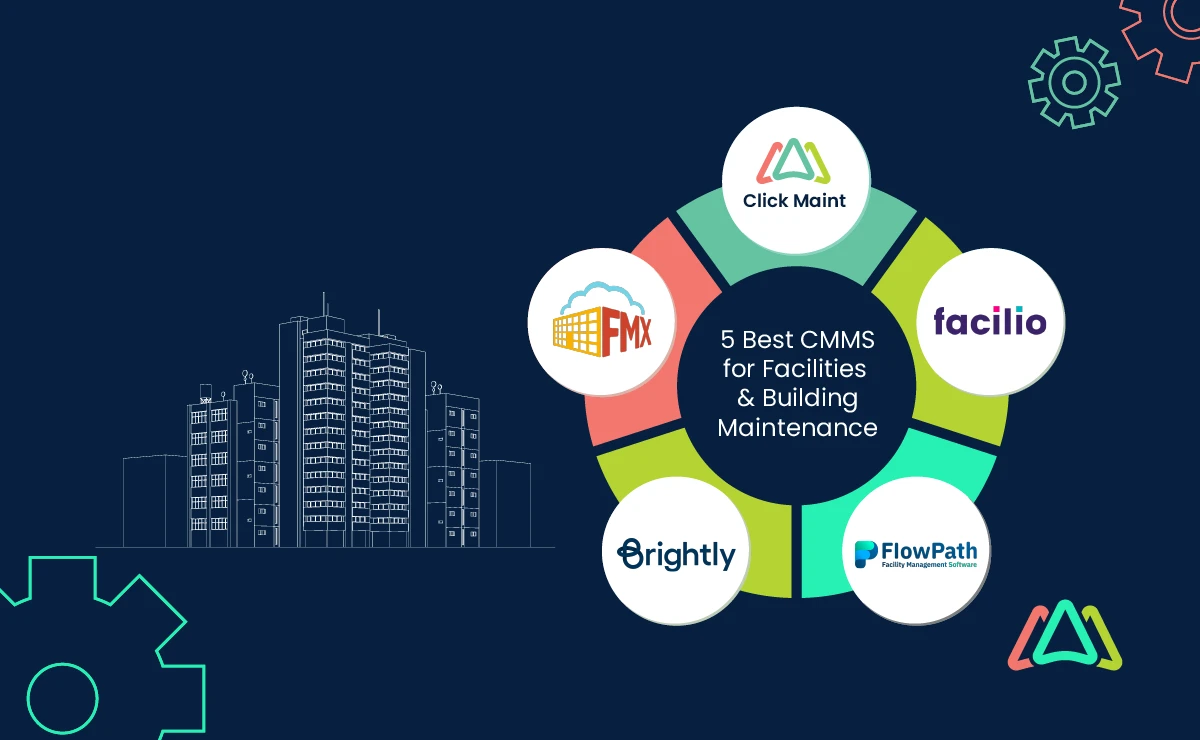Unlocking the Power of Total Facility Management for Optimized Operations
Unlocking the Power of Total Facility Management for Optimized Operations
Blog Article
Leading Benefits of Total Facility Management for Streamlined Procedures
Total Facility Management (TFM) represents a calculated strategy to improving operational effectiveness by integrating different services, such as upkeep and security, under a unified management framework. The question continues to be: what certain advantages can organizations harness from adopting TFM, and just how might these benefits change their operational landscape?
Enhanced Functional Effectiveness
Boosted operational performance is a key advantage of carrying out total facility management (TFM) methods. TFM includes a comprehensive approach to taking care of a center's resources, processes, and infrastructure, eventually enhancing procedures. By combining different services-- such as maintenance, area, cleaning, and security management-- TFM enhances and lessens redundancies coordination amongst different operational features.
The combination of technology further enhances this efficiency. Advanced facility management systems give real-time information analytics, making it possible for facility managers to make enlightened choices that enhance operations and source allowance. Anticipating upkeep strategies, as an example, anticipate tools failures before they occur, minimizing downtime and expanding asset life expectancy.
Furthermore, TFM advertises standard processes across numerous departments, guaranteeing consistency and high quality in service distribution. This uniformity lowers operational disruptions and fosters a much more collaborative workplace. Consequently, staff members can focus on their core responsibilities, driving productivity and enhancing general efficiency.

Expense Decrease and Financial Savings
Executing total facility management (TFM) not only improves functional efficiency however also dramatically adds to set you back reduction and savings. By combining numerous services under a single management structure, organizations can remove redundancies and improve procedures, thereby lowering functional prices. TFM enables much better purchase techniques, allowing firms to work out bulk getting arrangements with providers and service providers, resulting in lower rates.
In addition, TFM emphasizes preventive maintenance, which lessens unexpected breakdowns and extends the lifespan of critical tools. This proactive method not only minimizes repair service prices but additionally boosts the integrity of facilitiess, guaranteeing continuous operations. Furthermore, power efficiency initiatives, often a key focus of TFM, cause significant savings on utility costs, as facilitiess are enhanced for minimized power intake.
Improved Source Management
Reliable resource management is a cornerstone of total facility management (TFM), enabling companies to optimize using their assets and workforce. By carrying out TFM approaches, organizations can comprehensively evaluate their resource appropriation, making sure that every asset is made use of efficiently and efficiently. This all natural approach permits for the recognition of underperforming sources and the possibility for reallocation or improvement.
In addition, TFM assists in the assimilation of technology for real-time surveillance of sources, which helps in forecasting maintenance demands and protecting against costly downtime. By leveraging information analytics, companies can make educated decisions about resource deployment, ultimately enhancing efficiency and lowering waste.
In addition, TFM advertises a culture of continuous improvement, urging groups to on a regular basis examine and improve their source management techniques. Total Facility Management. This positive position not just decreases operational interruptions yet additionally cultivates top article innovation, as staff members are equipped to suggest enhancements based upon their firsthand experiences with source utilization
Streamlined Communication Networks
In total facility management, structured communication channels play a vital role in fostering cooperation and effectiveness throughout teams. Effective interaction guarantees that all stakeholders, consisting of facility managers, upkeep team, and service carriers, are straightened with business objectives and operational requirements. By establishing clear lines of communication, teams can swiftly address concerns, share updates, and execute services, therefore minimizing downtime and improving productivity.
With streamlined communication platforms, info is easily obtainable, allowing for real-time updates on upkeep requests, resource appropriation, and task timelines. This transparency not just decreases misunderstandings but additionally encourages employees to make enlightened choices swiftly. Structured communication facilitates far better sychronisation during emergencies, making sure that all employees are notified and can respond quickly.

Enhanced Concentrate On Core Activities
An essential advantage of total facility management is the increased concentrate on core activities, permitting companies to focus on their main service goals - Total Facility Management. By contracting out non-core functions such as upkeep, safety, and cleansing, business can reroute their resources and power towards strategic initiatives that directly contribute to their competitive advantage and development
Total facility management integrates various operational tasks under a single umbrella, fostering efficiency and reducing redundancy. This loan consolidation not just improves procedures yet additionally improves responsibility, making certain that every facet of the facility operates harmoniously without drawing away focus from what truly matters-- core business features.
Furthermore, this method allows employees to dedicate their time and efforts to jobs that drive advancement and improve client fulfillment, rather than obtaining stalled by functional obstacles. With a reputable facility management companion taking care of everyday procedures, organizations can achieve greater agility, react swiftly to market adjustments, and maintain a sharper concentrate on their mission.
Eventually, boosted emphasis on core activities leads to enhanced total performance, allowing companies to enhance their market setting and accomplish their strategic objectives better. - Total Facility Management
Verdict
In verdict, Total Facility Management significantly improves functional efficiency by settling necessary services and leveraging information analytics for informed decision-making. Price decreases and boosted source management add to overall savings, while streamlined communication channels foster collaboration among stakeholders. By permitting companies to concentrate on core tasks, TFM not only enhances efficiency however also enhances market positioning. The combination of these advantages emphasizes the significance of TFM in achieving lasting operational excellence.
Total Facility Management (TFM) stands for a tactical strategy to enhancing operational effectiveness by integrating various services, such as maintenance and security, under a unified management framework.Improved functional performance is a why not look here primary advantage of carrying out total facility management (TFM) techniques. Advanced facility management systems provide real-time information analytics, allowing facility supervisors to make enlightened decisions that improve operations and source allotment.Applying total facility management (TFM) not just improves functional efficiency yet also substantially contributes to cost reduction and cost savings.Effective source management is a foundation of total facility management (TFM), enabling companies to optimize the usage of their assets and labor force.
Report this page